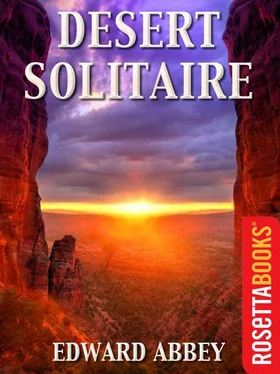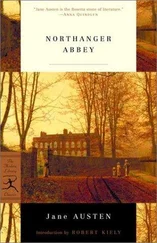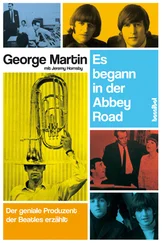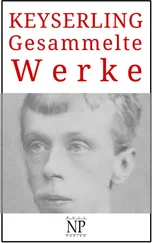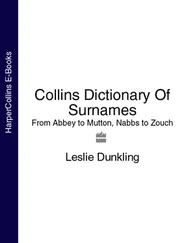Abbey, Edward - Desert Solitaire (Edward Abbey Series )
Здесь есть возможность читать онлайн «Abbey, Edward - Desert Solitaire (Edward Abbey Series )» — ознакомительный отрывок электронной книги совершенно бесплатно, а после прочтения отрывка купить полную версию. В некоторых случаях можно слушать аудио, скачать через торрент в формате fb2 и присутствует краткое содержание. Год выпуска: 2011, Издательство: RosettaBooks, Жанр: Старинная литература, на английском языке. Описание произведения, (предисловие) а так же отзывы посетителей доступны на портале библиотеки ЛибКат.
- Название:Desert Solitaire (Edward Abbey Series )
- Автор:
- Издательство:RosettaBooks
- Жанр:
- Год:2011
- ISBN:нет данных
- Рейтинг книги:4 / 5. Голосов: 1
-
Избранное:Добавить в избранное
- Отзывы:
-
Ваша оценка:
- 80
- 1
- 2
- 3
- 4
- 5
Desert Solitaire (Edward Abbey Series ): краткое содержание, описание и аннотация
Предлагаем к чтению аннотацию, описание, краткое содержание или предисловие (зависит от того, что написал сам автор книги «Desert Solitaire (Edward Abbey Series )»). Если вы не нашли необходимую информацию о книге — напишите в комментариях, мы постараемся отыскать её.
Desert Solitaire (Edward Abbey Series ) — читать онлайн ознакомительный отрывок
Ниже представлен текст книги, разбитый по страницам. Система сохранения места последней прочитанной страницы, позволяет с удобством читать онлайн бесплатно книгу «Desert Solitaire (Edward Abbey Series )», без необходимости каждый раз заново искать на чём Вы остановились. Поставьте закладку, и сможете в любой момент перейти на страницу, на которой закончили чтение.
Интервал:
Закладка:
Here the canyon walls are a little wider, permitting the sun, for perhaps a couple of hours during the summer day, to shine directly down into this cul-de-sac. A rivulet of clear water pours into the pool; glints and flecks of light reflected from its agitated surface dance over the dark-golden walls of the glen. Lichens are growing there, green, red, orange, and along the seep line are beds of poison ivy, scarlet monkeyflower, maidenhair fern, death camas, helleborine orchid and small pale yellow columbines. There are no trees or shrubs, for the sunlight is too brief.
The sun is gleaming on the pool, on the foam, on the transparent waterfall. I dive in, swim under the fall and take a soapless shower, lie on the rock in a patch of sunshine and gaze up at the small irregular fragment of blue which forms the sky in this place. Then I return through the tunnel to camp and companion.
Has this particular canyon been seen and named by earlier river-runners? No doubt it has, but I find no evidence to dispel the illusion that I may be the first ever to have entered here. And probably the last.
After a lunch of refried pinto beans and dehydrated apricots—a piquant combination—we climb into our double boat and float onward. Since we have missed Music Temple I am more determined than ever that we must not pass Forbidden Canyon and the trail to Rainbow Bridge, climax and culmination of any trip into Glen Canyon.
We stay close to the south and east shore of the river, despite the ferocious afternoon sun, investigating each side canyon that we come to. In one of these I accidentally start a brush fire, and am nearly cooked alive. Sheer carelessness—a gust of wind carries a flaming piece of paper into the dried-out tangle of a willow thicket; the flames spread explosively; in a minute the mouth of the canyon is choked with smoke and fire and there is nothing I can do but get out of there, quick, as the flames rush down through the jungle toward Ralph, waiting for me in the tethered boats.
He is all ready to cast off when I appear, about ten feet in front of the onrushing sheet of fire, running. I push the boats off and roll in; we paddle away as hard as we can from the fiery shore, the final wild flare of heat. With generous tact Ralph does not even ask for an explanation. You can see a photograph of what I did in Eliot Porter’s beautiful book on Glen Canyon, The Place That No One Knew .
“Hot in there,” I say, though Ralph has asked no questions.
“So I noticed.”
“Had an accident.”
“Is that right?”
Shakily I tamp my pipe and fumble through the pockets of my shirt. All gone.
“Here,” he says. “Have a match.”
The river carries us past more side canyons, each of which I inspect for signs of a trail, a clue to Rainbow Bridge. But find nothing, so far, though we know we’re getting close. We can see in the canyon distance, not far ahead, the southern tip of the Kaiparowits Plateau—the landmark to guide by when seeking the way to Rainbow Bridge.
We bounce over a series of minor ripples and the river picks up speed. There is a corresponding excitement in the sky: the storm that has seemed potential for days is gathering above in definite form—wild gray scuds of vapor, anvil-headed cumuli-nimbi, rumbles of thunder coming closer.
From up ahead comes the familiar freight-train roar of white water again. A new and formidable canyon opens on the left, with a broad delta of pebbled beach, mud banks, rocks and boulders and driftwood issuing fanwise from its mouth. The boulders, carried down from the flanks of Navajo Mountain, cause the rapids which lie before us.
A little wiser now, learning from experience, we do not battle the current but rest until we are close to the rapids, then with a sudden furious effort paddle into the backwash near the shore and have no trouble making a landing in the shallows.
Ralph starts supper. I pull on boots and go exploring. I find a trail but it’s a poor one, little more than a deer path, which peters out completely a mile up-canyon. There are ponds of fresh water on the canyon floor; I refill the canteens and return to the boats.
The wind by this time has risen to a magnificent howl, the sky is purple, and jags of lightning strike at Navajo Point, the remote crag two thousand feet above the river on the north side. Cold rain spatters on the hot sand of the beach, raising little puffs of dust and steam. Rock and driftwood and the flashing underside of leaves gleam with a strange, wild, shifting light from the stormy sky.
We rig the tarpaulins into a tent, preparing for rain, and eat our supper of pancakes on which we pour a sauce of stewed raisins, in place of the syrup we haven’t got. Very good. Filling, anyhow. Afterwards, tea and tobacco.
We sit outside our tent, enjoying the weather. After a week of clear skies, and the heat and glare of the relentless sun, the cool wind and the sprinkling of hard cold raindrops on our bare heads and bare bodies feel good.
The heavy rain we’ve been anticipating fails to come. We pile our baggage under the canvas shelter and unroll our sleeping bags in a hollow among the white dunes, under the open sky. Falling asleep, I see a handful of stars blinking through a break in the racing clouds.
A red dawn in the east, cloud banks on fire with the rising sun. I bathe in the cold river, do my laundry, and build a fire for our breakfast: dried pea soup and tea bags. The last box of raisins I have set aside for lunch. Stores seem to be getting low—from now on it’ll be catfish or nothing.
Onto the river and through the whirlpools, we glide without mishap into quiet water. Our little boats are holding up well; despite all the rocks we’ve bounced them off and over, despite the sand and snags we’ve dragged them over, they have yet to sustain a puncture or spring a single leak. Aye, but the voyage is not over—shouldn’t mention these things.
Within a short distance we come to another big tributary canyon on the port side or southerly shore of the river. Navajo Point, the final outcropping of the Kaiparowits Plateau, is directly overhead. This canyon too has tumbled boulders into the river, forming one more stretch of rough water. As before we take advantage of the eddies close to the rapids, swinging briefly upstream and then into the flooded mouth of the side canyon. We tie up on a mud bank and get out to investigate.
At once I spot the unmistakable signs of tourist culture—tin cans and tinfoil dumped in a fireplace, a dirty sock dangling from a bush, a worn-out tennis shoe in the bottom of a clear spring, gum wrappers, cigarette butts, and bottlecaps everywhere. This must be it, the way to Rainbow Bridge; it appears that we may have come too late. Slobivius americanus has been here first.
Well, no matter. We had expected this. We know with certainty that we are now only a few hours—by motorboat—from the Glen Canyon dam site. I also happen to know that the natural bridge itself is still six miles up the canyon by foot trail, a distance regarded as semiastronomical by the standard breed of mechanized tourist. His spoor will not be seen much beyond the campground.
We set up a camp of our own well beyond the motorboaters’ midden, near the little stream that tumbles down the rocky canyon floor, coming from the great redrock wilderness beyond. The trail to Rainbow Bridge, passing close by, is rough, rocky, primitive. Newcomb, who has brought no boots, decides to go fishing. We divide the box of raisins and the last of the dried apricots. I stuff my share into my shirt pockets and lace up the boots, hang a canteen over my shoulder and march off.
The trail leads beside the clear-running brook and a chain of emerald pools, some of them big enough to go swimming in, with the water so transparent I can see the shadows of the schools of minnows passing over the grains of sand in the bottom of the basins. Along the canyon walls are the seeps and springs that feed the stream, each with the characteristic clinging gardens of mosses, ferns and wildflowers. Above and beyond the rimrock, blue in shadow and amber-gold in light, are alcoves, domes and royal arches, part of the sandstone flanks of Navajo Mountain.
Читать дальшеИнтервал:
Закладка:
Похожие книги на «Desert Solitaire (Edward Abbey Series )»
Представляем Вашему вниманию похожие книги на «Desert Solitaire (Edward Abbey Series )» списком для выбора. Мы отобрали схожую по названию и смыслу литературу в надежде предоставить читателям больше вариантов отыскать новые, интересные, ещё непрочитанные произведения.
Обсуждение, отзывы о книге «Desert Solitaire (Edward Abbey Series )» и просто собственные мнения читателей. Оставьте ваши комментарии, напишите, что Вы думаете о произведении, его смысле или главных героях. Укажите что конкретно понравилось, а что нет, и почему Вы так считаете.
